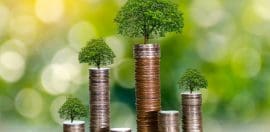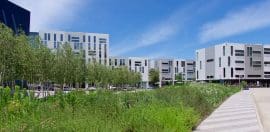Imagining life after COVID-19

29 March 2020 at 3:00 pm
With so many opportunities for shaping a better society on the table, we need to think beyond the present. The challenge is to resist the pressure to return to business as usual, writes Andrew Hamilton.
To think of life after COVID-19 is daunting. The changes that it has brought to our daily lives have been vertiginous. Our awareness of its potential harm is still limited. We are only beginning to catch sight of the grim beast that slouches towards us threatening death and devastation in coming months.
Nevertheless, with so much rebuilding of society that will need to be done and so many opportunities that will present themselves for shaping a better society, we do need to think beyond the present.
Some possibilities are evident even in the disruption caused by our response to the threat. One of the most surprising features of that response has been flexibility, even in the face of visceral convictions. It is seen particularly in the abandonment of the economic ideology accepted by both major parties.
This equates the national good with economic growth. It centralises the freedom of competitive individuals in a free and minimally regulated market. Governments’ role is to support the market by balancing their lean books, privatising community assets, and bullying individuals who cannot compete in society.
This view of the world is deeply held. Yet within a week or two the government has been persuaded to go heavily into debt, to prop up no-longer competitive businesses, to consider nationalising them if necessary, to give money to people who are unemployed and make it easier for people suddenly employed to access benefits, and to listen to experts other than party-line economists in framing policy. All these measures effectively subordinate the economy to the health of the community. Though the change is explicable and commendable, I find surprising the lack of resistance to the betrayal of such a deeply rooted ideology.
These and other such changes to conventional wisdom, such as the encouragement to work from home, will create a demand for broader change.
“When reflecting on the society that we wish to build after coronavirus, we need to go beyond rebuilding the priorities and the ways of working that were there before. They were clearly inadequate.”
This will be resisted because of an abiding conflict between different priorities given to the economy and to the wider culture. This difference finds expression in the way that the individuals and community are valued, and to the relationship between the local and the global.
The regnant neoliberal construction makes economic growth the mark of a good society, and free competition by individuals and corporations central to that goal. Individuals’ value lies in their contribution to economic activity.
Critics of this emphasis on the determinative priority of economic activity insisted that all human beings have a personal value that does not depend on their virtue or their participation in the economy. They are persons, not individuals. These critics emphasise, too, how important are the varied and deep relationships that enable persons to grow within communities. This interlocking set of relationships gives all people a responsibility to contribute to the larger community, and especially to its most vulnerable members. From this perspective the goal of government is to promote the growth of all persons in society, especially the most vulnerable. Economic growth is important but subservient to that goal. It must respect the other relationships that make a good world.
The second important relationship is between the universal and the local. Where economic growth led by individual freedom is the goal, the ideal world is seen as a single market in which competitive individuals and corporations should be able to compete freely, cooperate freely, sell freely and profit freely. From this perspective the local becomes essentially a brand name devised to sell the same goods to different regions.
Critics of this view emphasise the overriding importance of local relationships central to personal identity. These flow into broader relationships in groups based on culture, religion, political views, interests and so on. They reach out further to the relationships that make up nations and a world in which respect for persons and trust between communities dominates.
Seen from this perspective, the response to the COVID-19 crisis has shown how corrosive to good society the current ideology of governments has been. The response has accepted that economic development is a means to deeper goals of society, that people are more than competitive individuals, and that the good order, and now the survival, of societies depends on trust and cooperation between persons and their communities.
When reflecting on the society that we wish to build after coronavirus, we need to go beyond rebuilding the priorities and the ways of working that were there before. They were clearly inadequate. The challenge will be to resist the pressure to return to business as usual, and to incorporate into our thinking about the economy and our shaping of society what we have learned of the importance of cooperation, communication, trust and generosity – in a word, love.
About the author: Andrew Hamilton is consulting editor of Eureka Street.
This article was first published on Eureka Street.







